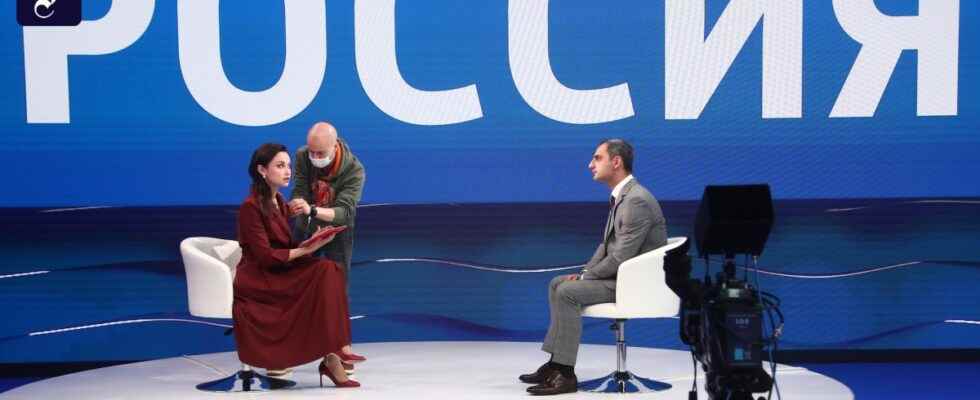AThe ninth package of EU sanctions against Russia came into force on Friday. This means that 190 more people and organizations are listed, resulting in entry and property bans and a ban on doing business. Four other radio stations are no longer allowed to broadcast their programs in the EU, regardless of the channel. In addition, existing export restrictions will be extended; this concerns a trade volume with Russia of 2.5 billion euros (before the start of the war). The unanimous adoption of the package became possible after the EU ambassadors reached an agreement in the dispute over exceptions on Thursday evening.
With the 190 listings, the total number of persons and organizations sanctioned rises to 1,557. This round affects 31 members of the Russian general staff who are held responsible for rocket and drone attacks on civilian targets in Ukraine, twelve members of the government, 42 members of the Duma and the Federation Council, five parties and all ten members of the Constitutional Court. They are accused of supporting aggressive war and illegal annexations in one way or another. The assets of two other Russian banks are also frozen, and transactions with the state bank for regional development are no longer allowed.
Exceptions permitted in individual cases
Among the broadcasters sanctioned are two big ones: state-owned channel Rossiya 1 and private channel NTV, which was once a bright spot on the Russian media scene before it was taken over and brought into line by Gazprom-Media. It is possible that Moscow will retaliate with work and broadcast bans on Western media. This played a role in the considerations, an EU official admitted on Friday, but was not decisive.
Export restrictions extended to 168 more companies from Russia’s military-industrial complex; a total of 410 companies are now affected, including all the leading armaments groups. As part of the measures against the aviation and space sector, parts of engines that cost less than 50,000 euros may no longer be exported. The ban on the export of drone engines, which affects Iran as well as Russia, is significant. Iran has supplied Russian forces with so-called kamikaze drones, which are causing extensive destruction in Ukraine.
The EU has exempted Russian exports of food and fertilizers from sanctions across the board. However, sanctions against six entrepreneurs and oligarchs have hampered deliveries. They can no longer use their assets in the EU to pay port fees in Rotterdam, for example. Therefore, a new provision now stipulates that national authorities may allow exceptions in individual cases. Poland and Lithuania initially blocked this, but agreed on the condition that any exceptions must be reported to the EU Commission and their “national security” must be preserved.
Also on Friday, the so-called Hungary package came into force, which includes budget support, the introduction of a minimum tax on global corporations and Hungary’s national reconstruction plan, as well as budget sanctions against Budapest. The Commission can now freeze 6.3 billion euros until the country implements extensive reforms. This decision was supported by all Member States except Hungary and Poland. This far exceeded the required qualified majority.
“Lithuania will keep its gates closed,” wrote Foreign Minister Gabrielius Landsbergis on Twitter. The 9th package is a “missed opportunity”. It is sad that so much time was spent on exceptions instead of stronger sanctions. On the other hand, Chancellor Olaf Scholz (SPD) pointed out after the European Council that part of the agreement with Russia on export corridors for Ukrainian grain was that Russian grain and fertilizers could also be exported.
